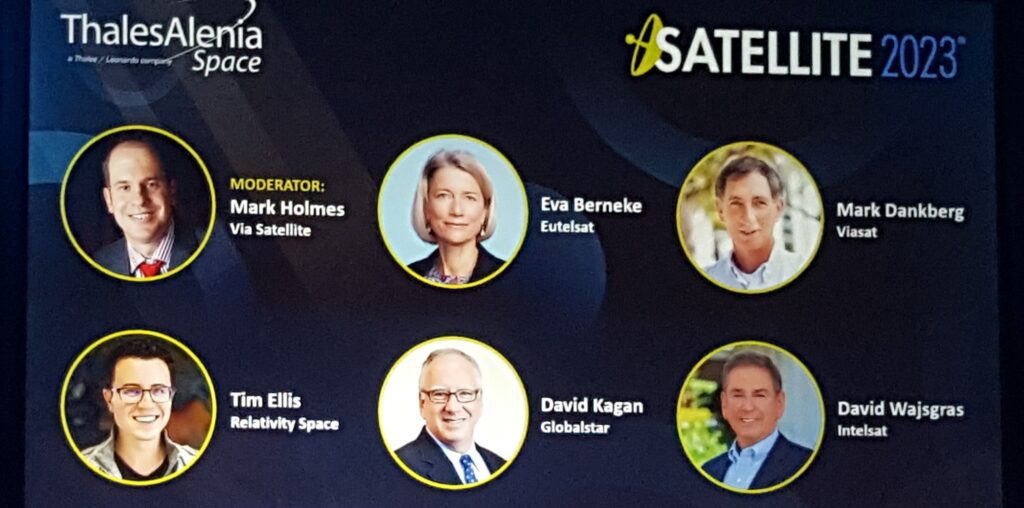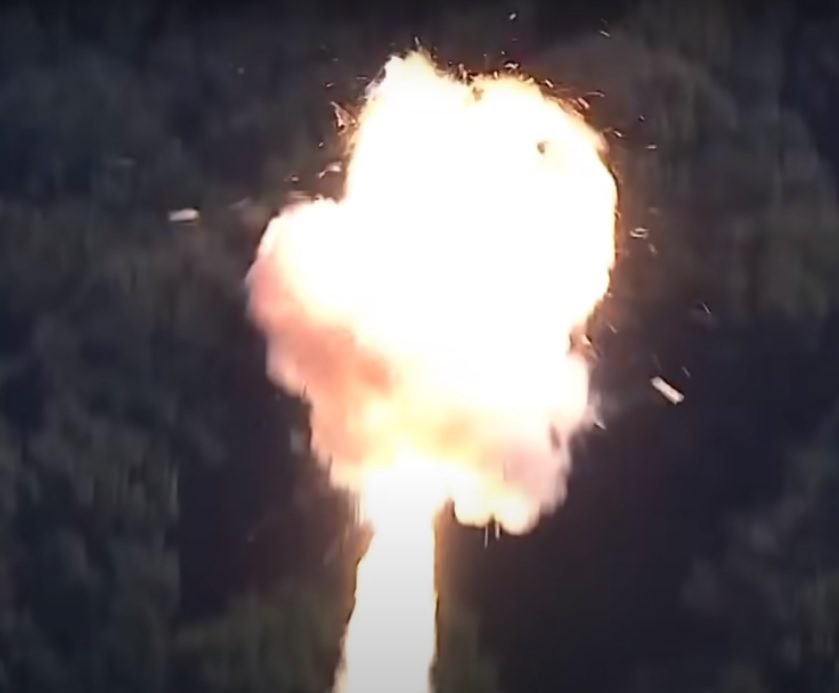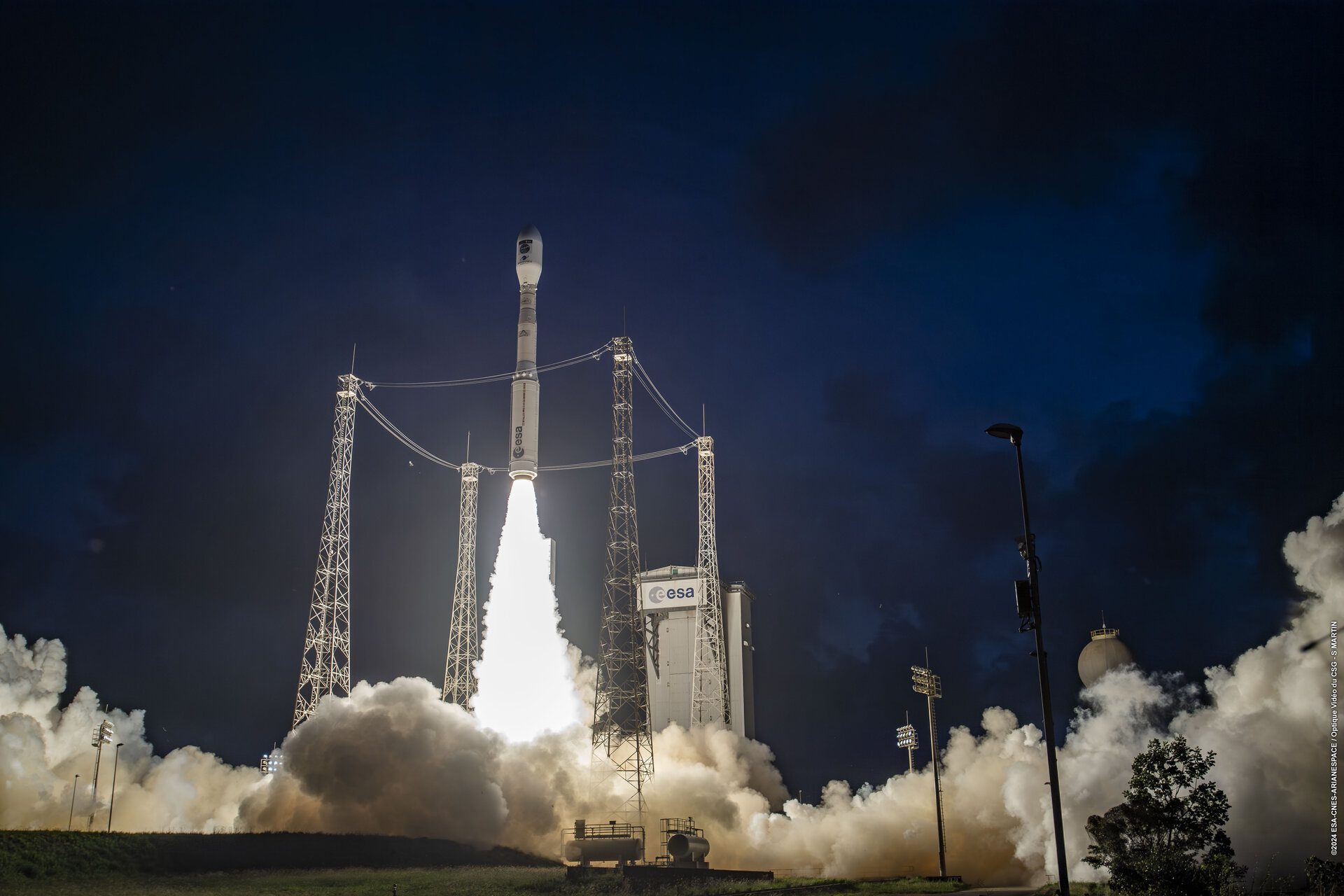During the SATELLITE 2023 Tuesday opening session the chief executives of Eutelsat, Viasat, Globalstar, and Intelsat, were joined by the CEO of upcoming launch provider Relativity Space, Tim Ellis. His presence provided a viewpoint from a differing orbit to that of satellite operators.
Ellis may have been hoping to start the day with the good news that his new rocket, the Terran 1, had flown successfully, but unfortunately two attempts to launch the vehicle ahead of the conference on 8 and 11 March did not take place due to various issues with the rocket. It is now scheduled for another attempt on 17 March.

The panel making up the Tuesday General Session at SATELLITE 2023. Photo by Matt Wilson
Ellis said consolidation in the launcher market in the coming years was unlikely. His primary reasoning for this is how the uniqueness of differing rocket designs and technologies leads to strong incompatibility between different rocket builders.
Tim Ellis commented on projected launch demand and was upbeat about the prospects for smaller launch vehicles like his Terran 1. Something he did note was the concern from operators about the availability of medium to heavy lift launches in the near future, 2024-27. He commented that the uneven supply and demand equation for launch capacity in this market is being exacerbated by the fact the many companies’ rocket upgrade or new vehicle programmes are occurring simultaneously – ULA Vulcan, Arianespace Ariane 6, Blue Origin New Glenn, MHI H3, and his own Terran R for instance. Another factor he noted here is bulk buying of medium to heavy lift launchers by constellation operators has begun to worry other operators fearing they may be pushed out of the 2024-27 timeframe.
Comment by Matt Wilson: Ellis did not name Project Kuiper when referencing constellation bulk buying. However, Amazon has purchased 77 launches from different providers to get its constellation into orbit in the coming years.





